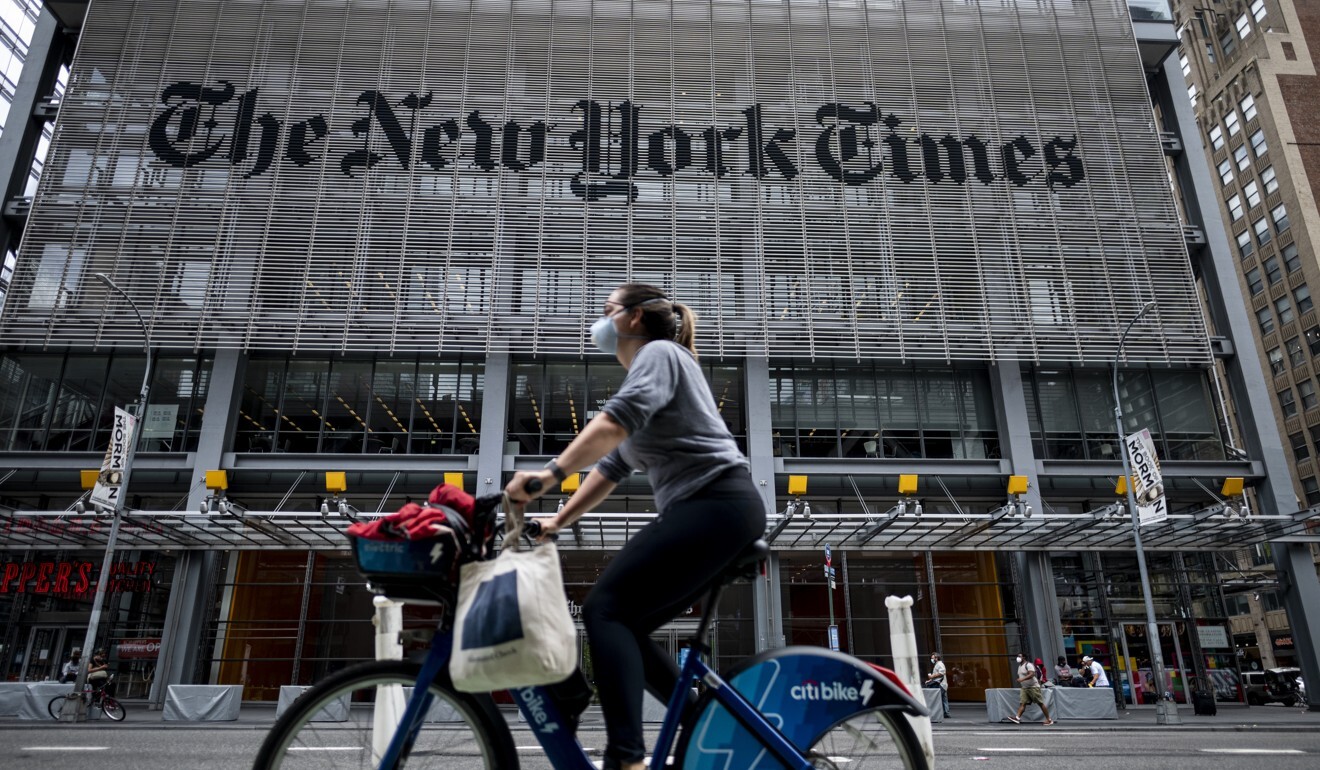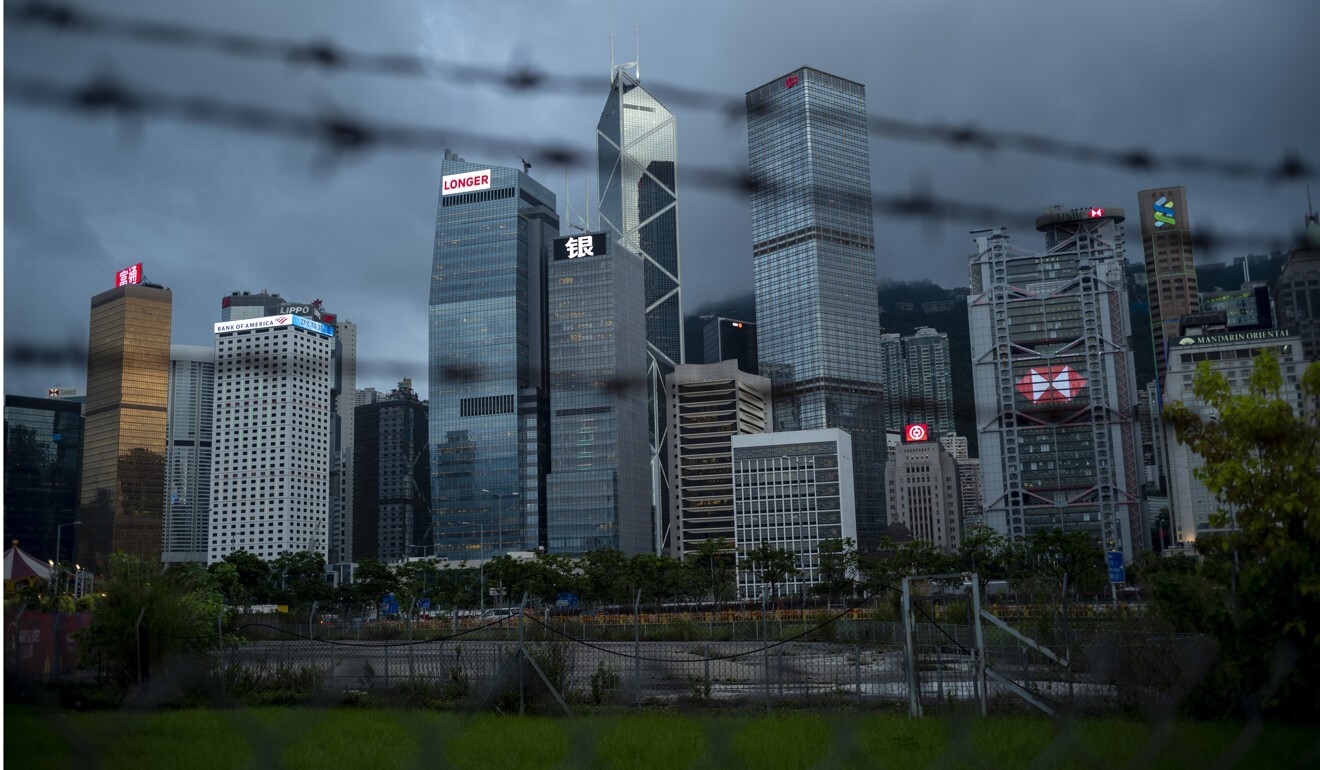
New York Times’ partial move from Hong Kong to Seoul sparked by visa denial, sources say, as paper cites worries over national security law
- Veteran foreign correspondent’s bid for work visa rejected by Hong Kong authorities, sources say
- Beijing says it is up to the newspaper to decide how to deploy staff, new law will affect very few
The New York Times is moving a third of its staff based in Hong Kong to Seoul, and sources say the decision came after a senior foreign journalist’s visa application was rejected by the city’s authorities.
Put in place last month, the new law has sparked concern among foreign media in the city, especially as Article 54 states that Beijing’s new national security office in Hong Kong will “take necessary measures” to strengthen the management of international organisations, including non-governmental groups and news agencies.

05:50
What you should know about China's new national security law for Hong Kong
The Post learned the Times’ decision came after Hong Kong authorities turned down a work visa application by Chris Buckley, one of its veteran correspondents previously based in Beijing.
The identity of the staff member was later confirmed by the Times.
An Australian who spent 24 years reporting in China, he was among a number of journalists from three US newspapers who had to leave the country in May, after Beijing did not renew their press cards. Most recently, Buckley was in Wuhan for 76 days, reporting on the Covid-19 lockdown.
China and the United States have clashed over the presence of journalists in each other’s countries, and Beijing has said that journalists barred from working in mainland China cannot work in Hong Kong either.
What Trump’s executive order means for Hongkongers
Reporting its decision on Tuesday, the Times initially did not mention Buckley, but said that some of its employees in Hong Kong had “faced challenges securing work permits, hurdles that are commonplace in China but were rarely an issue in the former colony”.
The paper’s senior editors and executives told staff in an internal memo: “China’s sweeping new national security law in Hong Kong has created a lot of uncertainty about what the new rules will mean to our operation and our journalism.
“We feel it is prudent to make contingency plans and begin to diversify our editing staff around the region.”
Hong Kong national security law official English version:
The Times said that its team of digital journalists, who make up a third of about 50 staff in the Hong Kong bureau, will head to Seoul over the course of the next year.
“With the city facing a new era under tightened Chinese rule, Times editors determined they needed an additional base of operations in the region,” the internal memo said.
“Any disruption to the operation has the potential to undermine our journalism, which is now more important than ever.”
Treaty nations to see how security law affects Hong Kong extradition
In a reply to the Post, a spokeswoman for the paper said Hong Kong has been a leader in supporting the rights of a free press in Asia for decades, and it was essential that it continued to do so, particularly given the treatment of members of the independent press within mainland China and the global nature of the coronavirus pandemic.
“Given the uncertainty of the moment, we are making plans to geographically diversify our editing staff around the region,” she said.
In the internal memo, the paper said its Hong Kong bureau was a base for reporters and editors covering Asia and in recent years had become an integral part of its 24/7 digital operation.
It would continue to have correspondents based in Hong Kong to cover the city and the region. Its print production team as well as advertising and marketing staff would also stay, it added.
A spokesman for the Immigration Department said it would not comment on individual cases. The department acted in accordance with the law in handling each application, he said.
The Post has contacted Buckley for comment.

In Beijing, foreign ministry spokeswoman Hua Chunying said on Wednesday that foreign media organisations need not worry about Hong Kong’s new legislation as long as they acted in accordance to the law.
“It’s The New York Times’ internal business, how they arrange staff and run their businesses,” she said, reiterating Beijing’s position that the law would target only a very small number of people.
Hong Kong to remain ‘important’ finance hub, despite security law fallout
Bruce Lui Ping-kuen, a senior lecturer at Baptist University’s journalism department, said even the partial move of staff out of Hong Kong by a top media organisation such as the NYT showed the extent of worries over press freedom in the city.

“The government is now forbidding journalists to work freely in the city by denying their work visas, which is definitely a sign of deterioration, as allowing the free flow of information is one of the important criteria for Hong Kong to serve as an international finance hub,” he said.

